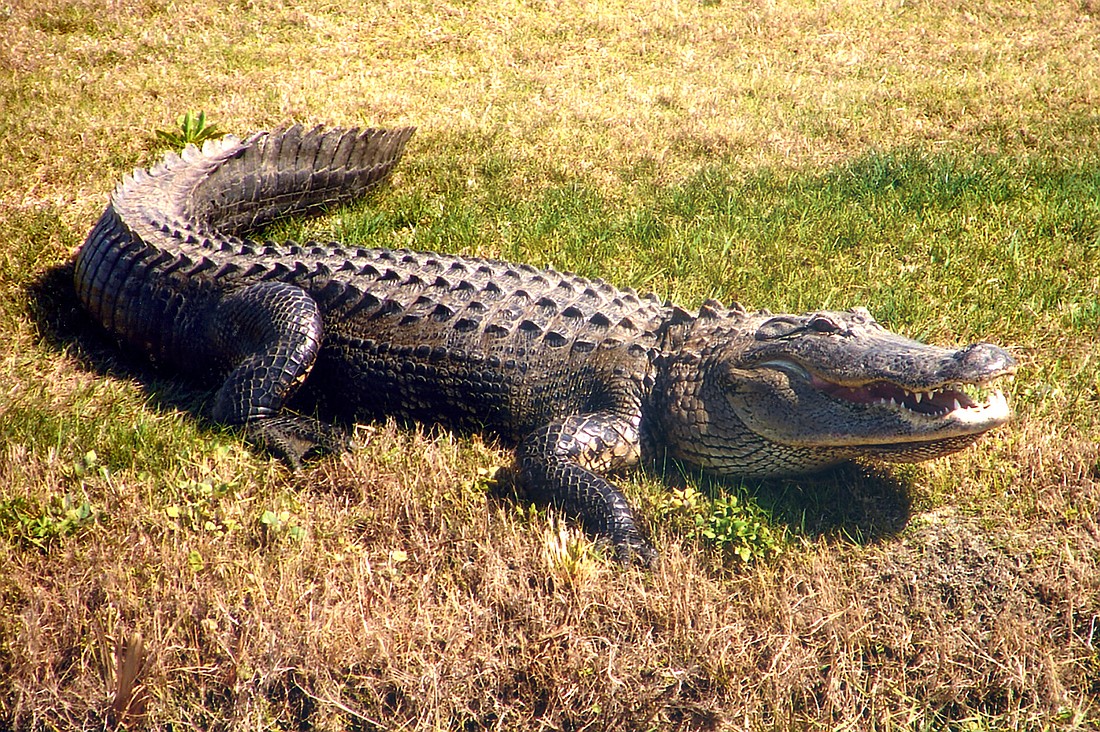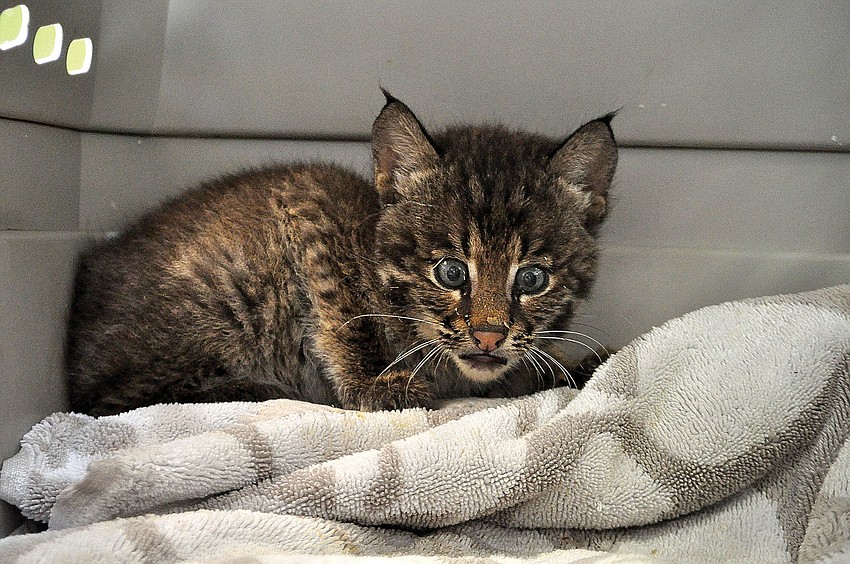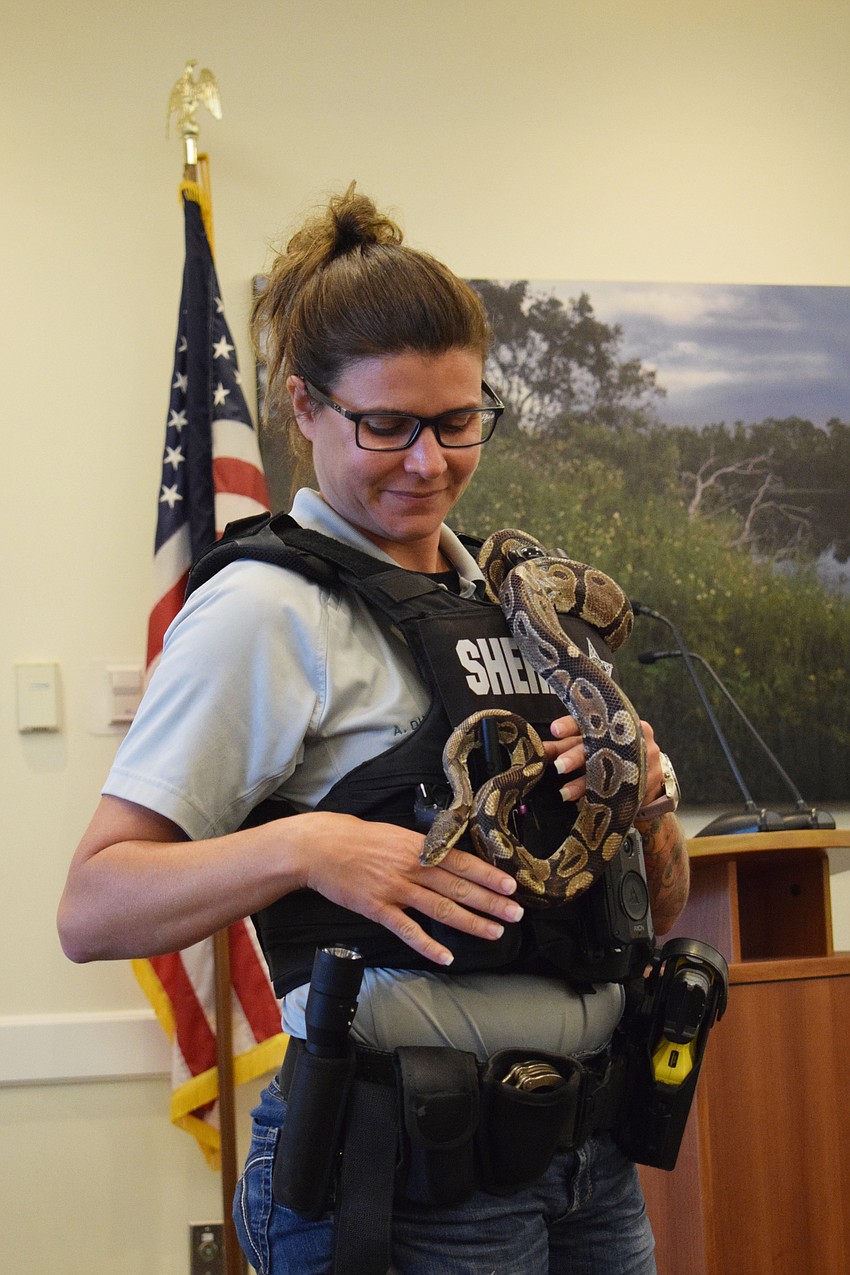- July 11, 2025
-
-
Loading

Loading

As Lakewood Ranch continues to be developed, there is less green space for the wildlife.
While a common misconception is that the wildlife will retreat to the green spaces and stay away from development, Jessica Moore, a wildlife biologist with the Florida Fish and Wildlife Conservation Commission, said the animals often stay in the area.
“A lot of times we have this idea that wildlife is in our area because there’s nowhere else for them to go. In some cases, that’s true. But we also, in a lot of ways, make our neighborhoods especially appealing to wildlife,” Moore said.
Moore said knowing the animals in the Lakewood Ranch area and what to do with the animals when they are near can help keep residents and wildlife safe.
“Knowing and being aware of your environment goes a long way to preventing any kind of encounter,” she said.
Moore, as well as Sgt. Rob Hendrickson with the Manatee County Sheriff’s Office, spoke about the various wildlife that can be found in East County during a “Living with Florida Wildlife” presentation Oct. 5 at Lakewood Ranch Town Hall.
Moore said Fish and Wildlife doesn’t consider any wildlife “inherently dangerous.”
“Most people who are injured by wildlife are doing something they shouldn’t be doing, whether they’re feeding that animal, trying to catch the animal, or trying to kill the animal,” Moore said. “If you just left the animal alone, those injuries wouldn’t have occurred.”
Moore said wildlife can be considered a nuisance when animals are causing property damage, are presenting a threat to public safety, or are being an annoyance.
When someone sees a bobcat crossing a backyard or a coyote walking down the street, a common response is to call Florida Fish and Wildlife Conservation Commission to report it and ask for it to be relocated.
But Moore said relocation usually isn’t the best option for the animals or the community.

She said relocation means moving an animal from its established territory to an unfamiliar area where it doesn’t know where to find food, water and shelter. The animal might not adjust well and it can disrupt the ecosystem in which it has been relocated.
Relocation also can facilitate the transfer of disease as new animals that might be carrying a disease are introduced to different areas.
Most times after relocation, Moore said the animals will expend energy to return to their familiar territory.
“So not only have you not solved the issue, you’ve also cost that animal a lot of work and caused that animal to cross a lot of roads and go through other human areas in the process,” Moore said.
Relocation also can cause more wildlife to inhabit the area. For example, if a coyote in a breeding pair is relocated, all the other adult coyotes in the pack will disperse and establish their own breeding pairs. As a result, Moore said it can sometimes cause a population increase.
When encountering wildlife, Moore and Hendrickson said the best thing to do is leave it alone.
Easy ways to deter wildlife is securing attractants such as closing garbage cans, not leaving pet food out, and emptying bird feeders at night.
There also are motion activated scare devices that will haze the animal when it is detected.
Moore said if wildlife like coyotes and bobcats continue to be present, hazing can encourage them to leave. Hazing includes people making themselves big, yelling at the animal, and being aggressive. Throw small stones or sticks near, but not at, the animal. Haze the animal every time it’s seen so it learns to keep a respectable distance from people.

A snake that finds its way into lawns, lanais, garages and, sometimes, a home, can cause panic for people. The assumption can be that the snake is venomous and therefore dangerous.
Hendrickson said pigmy rattlesnakes, eastern diamondbacks and water moccasin (also known as cottonmouth) are the three most common venomous snakes in the area.
He said snakes should be left alone because they’ll leave on their own. They won’t chase people.
If someone calls the Manatee County Sheriff’s Office for snake removal, Hendrickson and Deputy Amy Dunkum are the only ones in the Sheriff’s Office who are permitted to handle venomous snakes. If they aren’t working that day, Hendrickson said the Sheriff’s Office most likely will not send someone out to relocate the snake.
With several lakes in Lakewood Ranch, even if an alligator might not be seen in the lake, Hendrickson said there likely is an alligator present.
“If there’s freshwater in Florida, there probably was an alligator, is an alligator or will be an alligator,” Hendrickson said. “Alligators are not aggressive by any means as long as they don’t get fed. Alligators generally become a problem when people start feeding them, then they associate people with food.”
The Florida Fish and Wildlife Conservation Commission’s relocation policy for an alligator is if the alligator is under 5 feet, the trapper is supposed to catch and relocate it.
If the alligator is more than 5 feet, Hendrickson said the trapper can sell the alligator to a farm, which might keep it for breeding purposes.
If the alligator is aggressive, no matter the size, it will not be relocated, Hendrickson said.
Hendrickson said alligators will remain in the same area as long as there is water and a food source.
Male alligators can be more aggressive during mating season, which is in April and May. Nesting season in June and July is when female alligators will be more protective. During the colder months, alligators are not as active.
Some Lakewood Ranch residents might have found an alligator resting at their front door or in a parking lot. Hendrickson said this often is because it’s finding a spot to get warm and regenerate their energy so they can continue traveling.